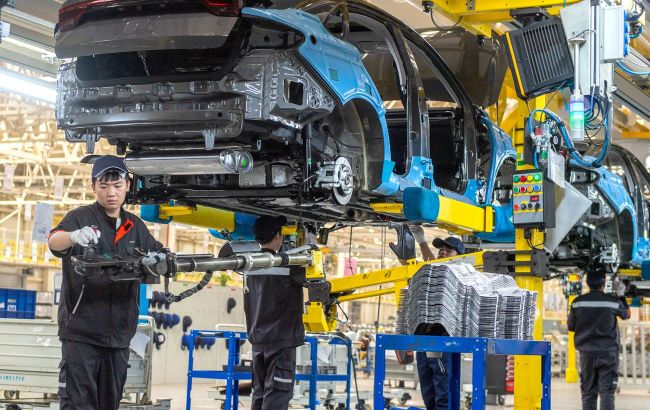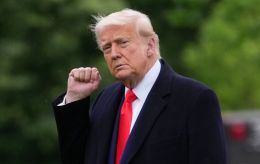Factories slow production, workers sent home as Trump tariffs hit China's economy
 Photo: Chinese workers will be sacrificed (Getty Images)
Photo: Chinese workers will be sacrificed (Getty Images)
Factories in China have begun to slow down production and are sending some workers on unpaid leave. The trade war launched by US President Donald Trump is reducing orders for a wide range of products - from jeans to home appliances, the Financial Times reports.
As most Chinese goods are now subject to US tariffs of at least 145%, some factory owners say American clients have canceled or suspended orders, forcing them to cut back on production.
About 15% of all Chinese exports last year went to the US. In interviews with the Financial Times and dozens of social media posts, workers shared photos of halted production lines or notices about factory closures, highlighting how the tariffs are beginning to take effect.
Workers to be sacrificed
Workers stated that the trade war has led to production shutdowns for a week or more at factories making everything from shoe soles to jeans, electrical outlets, and portable stoves. Some factory owners reported cutting back on overtime and weekend shifts.
Wang Xin, Head of the Shenzhen Cross-Border E-Commerce Association, an industry group representing more than 2,000 Chinese traders, said many were "extremely worried" and had instructed factories and suppliers to stop or delay shipments. This prompted some factories to suspend production for one to two weeks, she said.
Three recruiters working with factories in Guangdong reported that more and more factories are cutting overtime and weekend work, and only those factories most reliant on US orders are sending their entire workforce on leave.
"Our export orders disappeared, so we've shut down temporarily," said a 28-year-old worker at a plastics factory in Fujian Province who asked not to be named. Production had already been halted for a week, she said.
It's unclear how widespread these factory shutdowns are, said Han Dongfang, founder of the China Labour Bulletin, which closely monitors Chinese manufacturing and labor issues. "Restructuring China's manufacturing sector will be a long-term process, and workers will be sacrificed," Dongfang said.
Trump's tariffs
On April 2, US President Donald Trump launched the trade war by imposing a 54% tariff on all Chinese goods. Since then, Beijing has responded in kind, vowing to fight to the end.
Trump later raised tariffs on Chinese goods to 145%, and Beijing raised tariffs on American goods to 125%.
Trump has already stated that tariffs on Chinese goods will "come down substantially" but not canceled completely.

